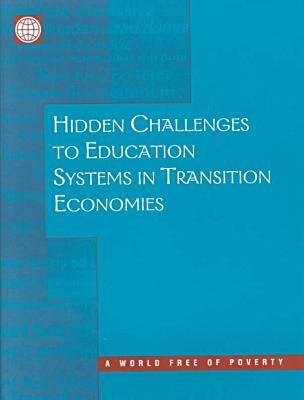Environmentally & Socially Sustainable Development: Rural Development S.
1 total work
Hidden Challenges to Education Systems in Transition Economies
by S.E. Berryman and The World Bank
Published 9 January 2000
As the transition began, countries in the Europe and Central Asia (ECA) region had reason to take pride in their education systems. They had solved problems that still bedevil several other regions of the world: adult literacy was almost universal; participation and completion rates for children and youth of both genders were high at all levels of education; teachers came to work; students had textbooks; students from some of the countries that participated in international assessments of mathematics and science performed well; and repetition and dropout rates were low. However, as this study reveals, the education systems in ECA fit the planned economies and authoritarian political systems well, but fit market economies and open political systems poorly. Prevailing teaching methods and materials do not impart the skills required by a market economy, such as recognizing and solving problems and applying knowledge flexibly. This volume outlines strategies that are required to change the education system in ECA. These strategies include the following: - Realigning education systems with market economies and open societies - Combating poverty by increasing educational fairness - Financing for sustainability, quality, and fairness - Spending resources more efficiently - Reinventing governance, management, and accountability The role of the World Bank in supporting these strategies is also highlighted.
